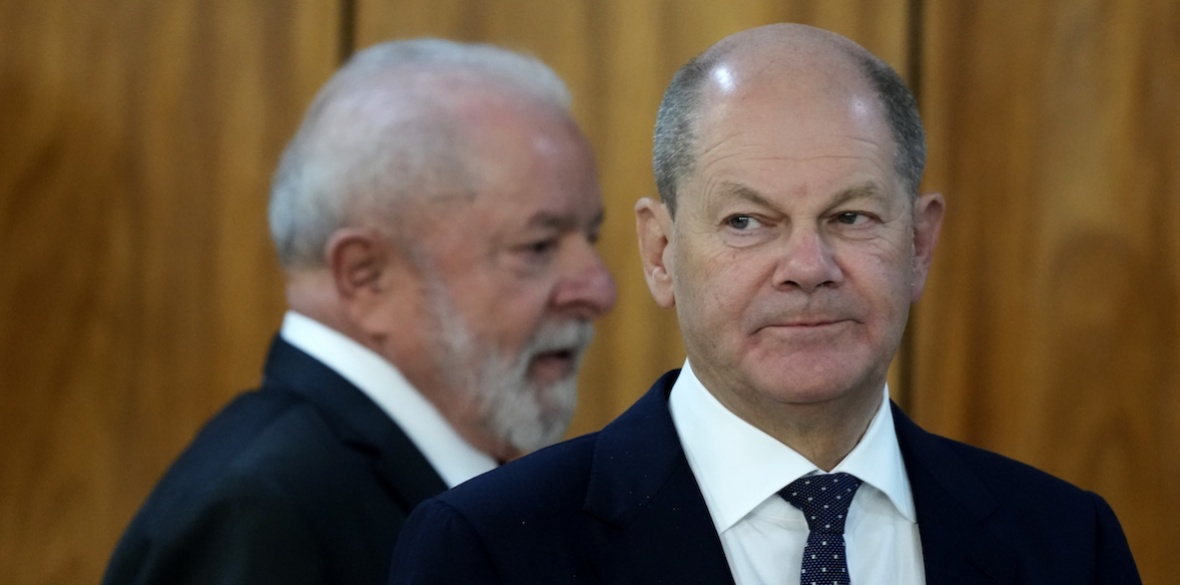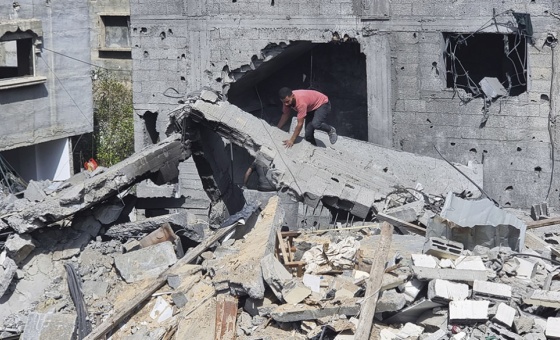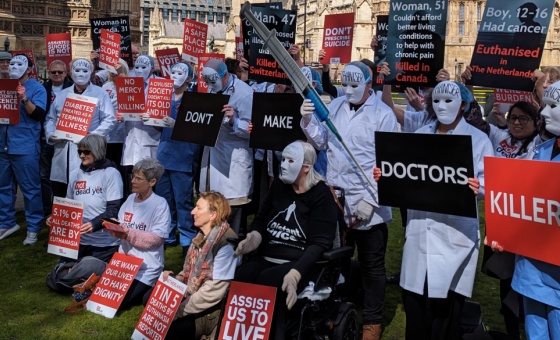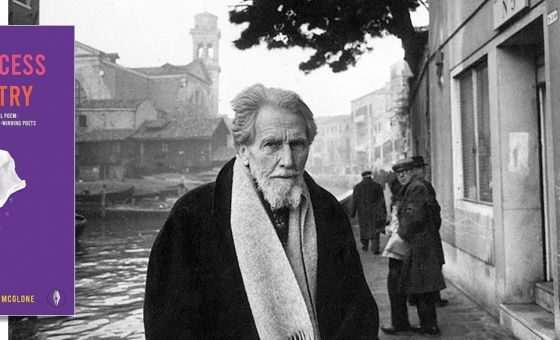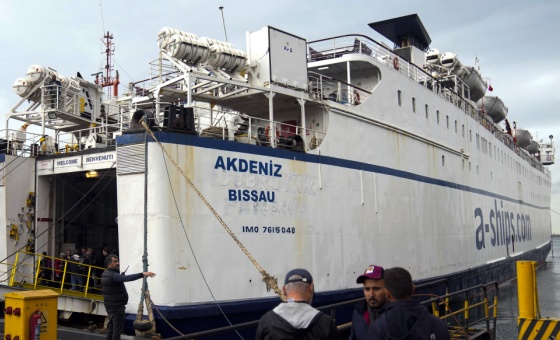This is the last article you can read this month
You can read more article this month
You can read more articles this month
Sorry your limit is up for this month
Reset on:
Please help support the Morning Star by subscribing here
CHANCELLOR Olaf Scholz, after bowing to belligerent pressures from US and Nato war hawks, flew off on his first official trip to Latin America last week. After brief, uneventful courtesy visits to Chile and Argentina he landed in Brazil, hoping to wean the world’s fifth-largest country into the Nato and European cradle – and away from the West’s Russian and Chinese rivals.
The closing press conference with Lula was full of smiles and back-slapping, at first! “We are all happy that Brazil is back on the world stage,” Scholz assured us. But then, suddenly, he got the happiness kicked out from under him.
No, Brazil would not send to Ukraine the desired parts of the German-made Gepard air defence tanks and no ammunition either. Lula declared: “Brazil has no interest in handing over munitions that can be used in the war between Ukraine and Russia. We are a country committed to peace.”
His next words asked almost heretical questions hitherto energetically smothered by Western media:
“I think the reason for the war between Russia and Ukraine also needs to be clearer. Is it because of Nato? Is it because of territorial claims? Is it because of entry into Europe?”
That was definitely not what Scholz wanted to hear. And when an almost visibly nervous Scholz insisted that Russia’s invasion of Ukraine was not just a European problem, but “a blatant violation of international law” and that it undermined “the basis for our co-operation in the world and also for peace,” Lula, always smiling, insisted: “Until now, I sincerely haven’t heard very much about how to reach peace in this war.”
Then came Lula’s surprising proposal: the creation of a peace-oriented club of non-aligned countries like China, Brazil, India, and Indonesia, none of which have been included in serious discussions on the war. Such a club would mean down-playing Germany and all its European Nato allies or underlings – basically the opposite of what Scholz’s whole southern tour had aimed at.
It was hardly surprising that the press conference and the whole visit were given little more attention in most German media than, say, a minor earth tremor in Minas Gerais. Until now, the only positive echo from a German leader was heard from the co-chair of the Left Party, Martin Schirdewan.
But while calls for an end to the fighting and for non-European mediation from Schirdewan, from Sahra Wagenknecht, the long-time co-leader of the Left Party, or even from people like Harold Kujat, a retired top German and Nato general who has been calling for peace, could be minimised or ignored, this may prove not so easy when the voice is that of Lula, the president of the world’s fifth largest nation. Will his position on peace – or his proposal shape world events more than many desire? It may offer a ray of hope for new directions that can lead to peace.
Baerbock: It’s Russia we are fighting
Meanwhile, Germany’s foreign minister, Annalena Baerbock, has inadvertently spilled the beans. “We are not fighting against each other,” she told European deputies, and then declared openly what the media, less directly, has been plugging for years: “We are fighting a war against Russia!” But this all too truthful taboo-breaker had to be diluted; her deputy quickly corrected: “We support Ukraine but under international law. Germany is not a party to the war.”
No German foreign minister since 1945 has been so openly cheering for war as this Green Party leader. And she has been one of the loudest in pushing for tougher European Union sanctions: “We are hitting the Putin system where it needs to be hit, not just economically and financially but in its centre of power that will ruin Russia.”
Four main trends in Germany affect policy towards Russia and Ukraine. The Baerbock blusterers seem eager to oblige the Boeing-Northrup-Lockheed-Raytheon herd, aptly symbolised by the bronze Wall Street bull, seeking ever bigger fork loads of that $800-900 billion “Defence Authorisation” hay, over 10 times the size of Russia’s military budget.
It’s not easy to grasp what is defensive about it; of over 200 conflicts since 1945, the great majority by far were started by the US and all of them (except for Cuba) were far distant from US shores. This bellicose German trend group is also chummy with the US monopolies who have pressured Germany for years to stop buying Russian oil or gas instead of their own ocean-crossing fracking products.
When years of pressure and even the Ukraine war failed to totally sever Russian imports, some skilful underwater experts mysteriously blasted the pipeline under the Baltic Sea. After weak attempts to blame Russia for destroying its own pipeline, such clumsy stabbing around in this murky but not all too opaque sea-bottom whodunnit was abruptly abandoned; even President Biden, well in advance, had boasted of its elimination!
A second trend in Germany fully applauds all US-Nato policies and actions to keep this war going until Russia is beaten but differs insofar as it opposes a role as subservient junior partner to Washington or Wall Street.
The tone of its advocates brings back fearful old memories I still recall with a shudder. In those days it was not Leopards but Panzer and Tiger tanks lumbering out to defeat the Russians, as in the 900-day siege of Leningrad, with an estimated million and a half deaths, mostly civilians, mostly from starvation and extreme cold – more deaths in one city than in the bombing of Dresden, Hamburg, Hiroshima, and Nagasaki combined.
Somehow the tank-makers like to misuse the names of predators, also Puma, Gepard (Cheetah), and Luchs (Lynx). The names of their predatory manufacturers remain the same: Krupp, Rheinmetall, and Maffei-Kraus are now amassing not Reich-Marks but euros.
Of course, motivations and strategies have changed greatly, yet for many advocates of this trend, I fear, basic expansive intentions may not be so totally different. These forces are strong in both “Christian parties,” now in opposition, but also in the Free Democratic Party, a member of the government coalition.
A third, more complicated trend is based in the Social Democratic Party (SPD) of Chancellor Scholz. Many of its leaders are just as bellicose as their coalition partners. Party Chairman Lars Klingbeil, after praising the Ukrainians’ great military successes, boasted that they were due in part to military equipment supplied by Europe, also Germany, which had “broken with its decades-long taboo against sending any weapons into conflict areas.”
The aid would be continued, he stressed, while praising the Howitzer 2000, supplied by Germany, as “one of the most successful weapon systems thus far deployed in Ukraine.“ It would also supply missile launchers and the Gepard anti-aircraft gun tank.
Tries to deflect claims about German hesitance
But while Klingbeil’s words clearly aimed at deflecting accusations that Germany has dragged its feet about sending Leopard tanks and giving Zelensky the bigger and faster weapons he wants, like jet planes or maybe submarines, they also reflect a certain division within the party. A few of its leaders (and many of its members) lack enthusiasm about more and more billions in the war budget.
Scholz, too, sometimes seemed to hear faintly the voices of those, much more numerous in former East German areas, who are unwilling to support a war which hits German working people hard and could explode in all of Europe or the world.
This wobbly third position avoids analysis about any share of Washington and its Nato marionettes in responsibility for the war. It plays down or ignores any mention of the promise-breaking push of Nato (or its “east flank”) right up to Russian borders, rumbling its annihilation-weaponry to ever closer shooting distance from St Petersburg and Moscow, tightening its noose around Russian trade routes in the Baltic and, with Georgia and Ukraine, in the Black Sea, while Kiev, in battering all counterforces in the Donbass since 2014, was helping to create a trap for Russia.
Its goal, sometimes expressed explicitly, was to repeat the pro-Western, pro-Nato, Washington-led putsch in Maidan Square in 2014 – but the next time in Moscow’s Red Square – and finally in Beijing’s Tiananmen Square. Even mentioning this plan was labeled “old-left Russophile” nostalgia or “Putin-love.” But, happily or not, Scholz, with or without inner reservations about expanding the war, seems to have bowed to the giant US pressure for uniformity.

